📚 Die With Zero by Bill Perkins

🎯 Read This Book If
You want to learn about optimizing the experiences that matter to you, in order to get the most out of life.
🔑 Key Points
- The purpose of working and money is to have experiences, and the experiences we want to have will have different optimized times throughout our lives.
- Every experience requires a combination of: health, wealth, and time. Our capacity for all three changes over time.
- Being more deliberate with our money can help us optimize the experiences we want over our lives, helping us live our best life all of the time.
🤔 Main Ideas
This book is not about making your money grow – it's about making your life grow.
Optimize Your Life
Rule No. 1: Maximize your positive life experiences.
The question we all must answer is how to make the most of our time of earth. This question is an optimization problem: how to maximize fulfillment while minimizing waste. What's the best way to allocate our life energy before we die?
Decide what makes you happy and then convert your money into the experiences you choose. You should choose your experiences deliberately and purposefully rather than living on autopilot, as too many of us do.
To get the most out of your time and money, timing matters. To increase your overall lifetime fulfillment, it's important to have each experience at the right age. Maximizing your fulfillment from experiences is how you maximize your life. By taking charge of these crucial decisions, you take charge of your life.
Life energy is all the hours that you're alive to do things – and whenever you work, you spend some of that finite life energy. A higher salary doesn't always mean more actual income on an hourly basis. Many psychological studies have shown that spending money on experiences makes us happier than spending money on things. Experiences actually gain in value over time, through memory dividends.
Think about your life in a more purposeful, deliberate manner, instead of simply doing things as you and others have always done them. Plan for your future – but never in such a way that you forget to enjoy the present.
Invest In Experiences
Rule No. 2: Start investing in experiences early.
Your life is the sum of your experiences. The business of life is the acquisition of memories. In the end that's all there is.
Focus on managing what is under your control through the decisions you make – realize that a few factors are in your control, and one of the biggest is how much time at each age you devote to earning money versus having enjoyable experiences.

The payoff from an investment does not have to be financial. When you spend time or money on experiences, they are not only enjoyable in the moment – they pay an ongoing dividend, the memory dividend. Experiences yield dividends because we humans have memory. Those memories add up to make you who you are.
Whereas material objects can be replaced, memories are priceless. Buying an experience doesn't just buy you the experience itself – it also buys you the sum of all the dividends that experience will bring for the rest of your life.

By having experiences, you not only live a more engaged and interesting life yourself, but you also have more of yourself to share with others. Positive experiences are radioactive and contagious in a good way; they start a chain reaction that releases more energy than you thought you had.
We acquire money with the goal of having experiences. Many people live as if they forget that this is the point of earning, savings, and investing money. It pays to invest early.
We don't think nearly enough about how to spend our time and money. Making deliberate choices about how to spend your money and your time is the essence of making the most of your life energy.
Why Die with Zero?
Rule No. 3: Aim to die with zero.
To fully enjoy life instead of just surviving it, you need to stop driving mindlessly and actively steer your life the way you want it to go.
If you don't want to squander your life energy, you should aim to spend all your money before you die. Not to reach zero before you die, which would leave you high and dry, but to have as little as possible left unused for all the time and energy you spent working to earn that money.
Optimizing across your whole life takes a lot of thought and planning; it's easier to live for the short-term rewards and to stay on autopilot than to do what will be good for you in the long term.
Most people keep accumulating wealth for decades, and most don't start spending it down until very late in life.

During retirement, there's the: go-go years, slow-go years, and no-go years. In general, spending among American households declines as people age.
How to Spend Your Money (Without Actually Hitting Zero Before You Die)
Rule No. 4: Use all available tools to help you die with zero.
We are solving for your total life enjoyment. You should be focusing on maximizing your life enjoyment rather than on maximizing your wealth.
The human brain is irrational about death. The closer your death date is, the more urgency you need to have, and the further way it is, the more you can and should plan for the future.
Start thinking more about how you use your limited time, your life energy, and you'll be well on your way to living the fullest life you possibly can.
What About the Kids?
Rule No. 5: Give money to your children or to charity when it has the most impact.
The money you're leaving to your kids is not your money. Give your children whatever you have allocated for them before you die.
Putting your kids first means you give to them much earlier, and you make a deliberate plan to make sure that what you have for your children reaches them when it will make the most impact. That way, you've already operated out their money from your money, which is what you must spend down to zero.
The problem with inheritances: You're leaving too much to chance. The age of "inheritance receipt" peak around 60. The data clearly shows many people getting inheritances late in life, and that is suboptimal. By leaving things to chance, you're even increasing the odds that whatever you've got to give will arrive too late to do much good in your kids' lives.

The Die with Zero way, makes sure that you deliver on your good intentions. It simultaneously shows seriousness and caring. Economists who study data on bequests say that when people leave money to their children and grandchildren, their motives appear to be some mix of intentional and unintentional. Be intentional with your kids just as I am urging you to be deliberate with yourself.
The sad truth is that many people aren't as deliberate as they could be with their own lives, so they're not as deliberate as they could be with their children, either.
A person's ability to extract real enjoyment out of the gift declines with their age. For a whole host of activities, you need a certain minimum mental and physical state to enjoy them at all. You always get more value out of money before your health begins to inevitably decline.
By giving the money to my kids and other people at a time when it can have the greatest impact on their lives, I'm making it their money, not mine. It frees me to spend to the hilt on myself.
What kind of experiences do you want them to have with you? Adults who had memories of higher parental affection ended up with better health and lower levels of depression. The purpose of money is to have experiences, there is an optimal time, and it's never when you're dead.
My number one rule is: Maximize your life experiences. Spend your money while you're alive – whether it's on yourself, your loved ones, or charity. And beyond that, find the optimal times to spend money.
Balance Your Life
Rule No. 6: Don't live your life on autopilot.
Strike the right balance between spending on the present (and only on what you value) and saving smartly for the future. You want to achieve the optimal balance between enjoying the present and providing for a good future.
Your ability to enjoy many experiences in life depends on your health – but money plays a part, too, because a lot of activities cost money. You'd better spend the money when you still have the health. As you get older, your health declines and your interests gradually narrow. The utility, or usefulness, of money declines with age.
If your capacity to enjoy life experiences is higher at some ages than others, then it makes sense to spend more of your money at certain ages than others.

Making these kinds of conscious financial shifts essentially creates a lifetime spending plan that takes into account the changing utility of money. It makes sense to spend more of your money at some ages than others, so it makes sense to adjust your balance of spending to saving over the years accordingly. There is a time to work (and save) and a time to play, and the optimal life requires planning for both survival and thriving.

Nothing has a greater effect on your ability to enjoy experiences than your health. Improved health improves everything in your life, makes every experience more enjoyable, at every age. Health is the single biggest factor, there's basically a compounding effect to being in poor health. Movement is life.
Better health doesn't just give you a better retirement years from now – investing in your health is investing in every single subsequent experience!
Your time is a lot more scarce and finite than your cash. I am constantly trading money back into time. People who spend money on time-saving purchases experience greater life satisfaction, regardless of their income.
Using time-saving services reduced time pressure, they found, and reduced time pressure improved the day's mood. You are simultaneously reducing the number of negative life experiences and increasing the number of positive life experiences.
There are times to delay gratification, because doing so will net you more life experience points. The older you get, the less willing you should be to delay an experience, even if someone pays you a lot of money to do so.
Start to Time-Bucket Your Life
Rule No. 7: Think of your life as distinct seasons.
The day I die and the day I stop being able to enjoy certain experiences are two distinctly different dates. Sometimes people realize their mistake just before the window of opportunity closes and sometimes the recognition comes when it's too late to do anything at all about it except resolve to do better in their next life stage.
Being aware that your time is limited can clearly motivate you to make the most of the time you do have. When something feels abundant and endless, the truth is, we don't always value it. Each phase in your life is not that abundant.
Draw a timeline of your life from now to the grave, then divide it into intervals of five or ten years. Each of those intervals is a time bucket, which is just a random grouping of years. Then think about what key experiences you definitely want to have during your lifetime. Life is all about discovery.
As you're making your list, don't worry about money; money at this point is just a distraction from the overall goal which is to envision what you want your life to be like. Once you have your list of experiences, start dropping each of your hoped-for pursuits into the specific buckets, based on when you'd ideally have each experience.

Today's the day to start actively and consciously thinking and planning for your years ahead. By dividing goals into time buckets, you are taking a much more proactive approach to your life. Time buckets are proactive and let you plan your life; a bucket list, on the other hand, is a much more reactive effort in a sudden race against time.

Know Your Peak
Rule No. 8: Know when to stop growing your wealth.
The people you share experiences with truly affect the quality of the experience. What's the best way to spend our money for maximum enjoyment and in order to generate maximum memories? At the end of my life, I am convinced, my joy will come from my memories.
Delaying gratification is helpful only to a point. Throughout your life you have to balance your spending on the present with your saving for the future. You should find that one special point in your life when your net worth is the highest it will ever be. You can't leave the timing of the peak to chance – to get the most out of your money and your life, you must deliberately determine the date of your peak.
Enjoying experiences requires a combination of money, free time, and health. By working more years to build up more savings than you actually need, you are getting more of something (money), but you are losing even more of something at least as valuable (free time and health).

Think of your net work peak as a date instead of an amount. For most people, the optimal net worth peak occurs at some point between the ages of 45 and 60.

What you spend money on is up to you. Isn't it worth your while to think about what you value and put your money behind that? Be careful not to be constantly seduced by money. Remember that your goal isn't to maximize wealth but rather to maximize your life experiences.

Time moves in only one direction. If you keep that in mind as you plan your future, you'll be more likely to make the best use of every year of time in your life. Every dollar you don't spend at the right time will have far less value to you later. Your health massively changes your ability to enjoy all kinds of experiences.
Before you quit or scale back your job, really think through what you want to do once your work won't be taking up much of your everyday time. Put those in the appropriate buckets and start making new memories.
Be Bold – Not Foolish
Rule No. 9: Take your biggest risks when you have little to lose.
If you've given something your all, you'll get a lot of positive memories out of the experience no matter what happens. The balance between risk and reward changes with time – until the window of opportunity is gone forever. Sometimes things don't go your way, no matter how hard you try.
The older you get, the more you have to lose. The potential rewards are also lower! In the nest-case scenario, you'll have fewer years to enjoy that success. This whole "I'll wait to do this when I'm retired" is a massive blunder. What's easy shouldn't determine what you do. Don't let difficulty dissuade you from living your best life.
Be brave enough to spend your hard-earned money. Have the courage to walk away from a career so that you can spend your remaining time doing what's more fulfilling. People are more afraid of running out of money than wasting their life, and that's got to switch. People naturally vary in their risk tolerance, and that's okay.
Staying the course instead of making bold moves feels safe, but consider what you stand to lose: the life you could have lived in you had mustered the courage to be bolder. There's a difference between low risk tolerance and plain old fear.
Conclusion: An Impossible Task, a Worthy Goal
The goal is impossible, but that's okay. Because that goal will have done its real job, of pushing you in the right direction: By aiming to die with zero, you will forever change your autopilot focus from earning and saving and maximizing your wealth to living the best life you possibly can. That's why dying with zero is a worthy goal – with this goal in mind, you are sure to get more out of your life than you otherwise would have.
By pursuing ideals, we do move in the right direction – we become at least a little bit kinder, wiser, and more courageous. So go ahead – not only living your life to the fullest, but saving the only life you've got.
Rather than just focusing on saving up for a big pot full of money that you will most likely not be able to spend in your lifetime, live your life to the fullest now: Chase memorable life experiences, give money to your kids when they can best use it, donate money to charity while you're still alive. That's the way to live life.
Remember: In the end, the business of life is the acquisition of memories.
🧠 Final Thoughts
There are some ideas in Die With Zero that I don't completely agree with as a Financial Planner. But the overall message is something that totally resonates.
If we look at our lives as a book, filled with chapters, each chapter should have planned highs from the experiences we want. Instead of trying to pack everything we want to do into the final few chapters alone.
Even though Perkins' doesn't discuss financial planning throughout the book, it's a crucial ingredient for all of the reasons he discusses. If we're able to efficiently maximize long-term returns, we'll need less of our earned money routed towards our long-term goals. That means keeping more of your hard-earned money in your pocket for the experiences that matter most.
By efficiently optimizing our future, we can easily, almost subconsciously, optimize our present. Allowing us to live our dream retirement, and live our dream life every step of the way.
❤️ Liked This? Check These Out
The Almanack of Naval Ravikant by Eric Jorgenson, a guide to wealth and happiness
Your Future Self by Hal Hershfield, how to make tomorrow better today
The Psychology of Money by Morgan Housel, timeless lessons of wealth, greed, and happiness
All ideas, quotes, and illustrations are borrowed or based on Die With Zero by Bill Perkins. To learn more, visit diewithzerobook.com.

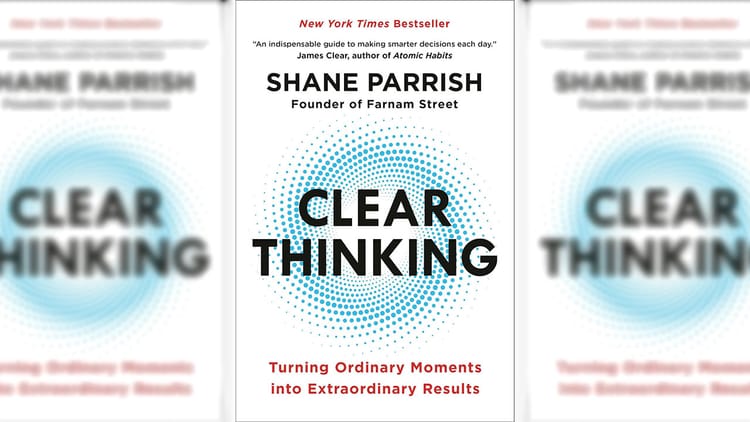
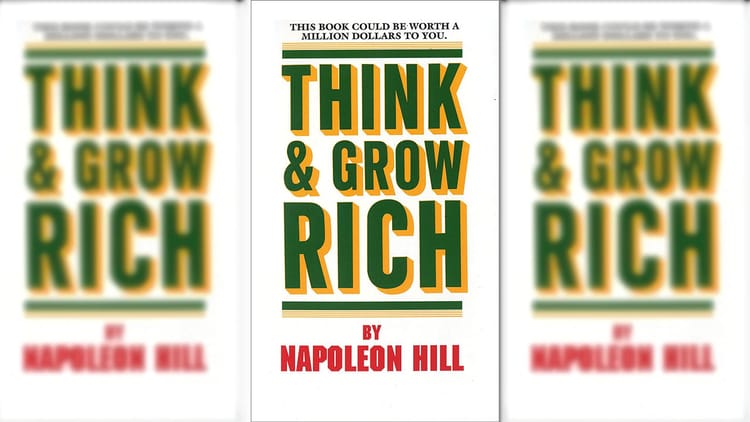
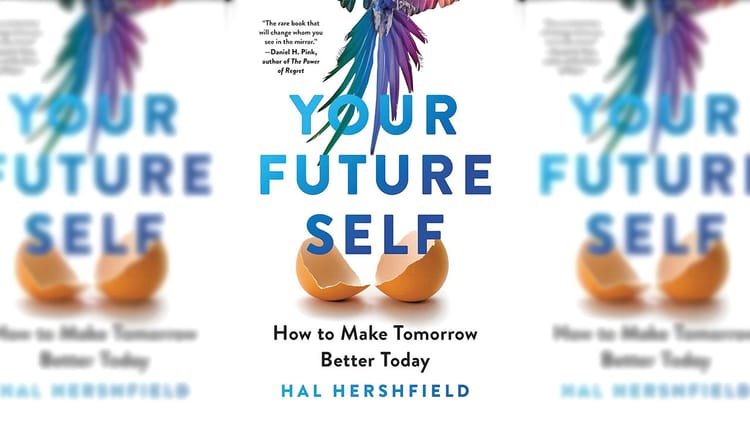
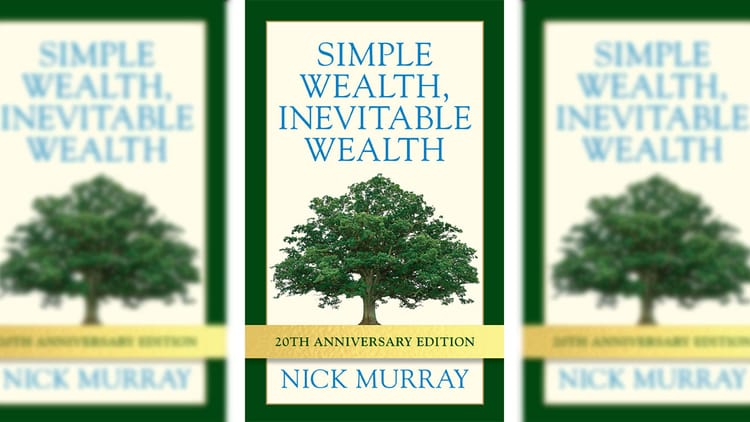
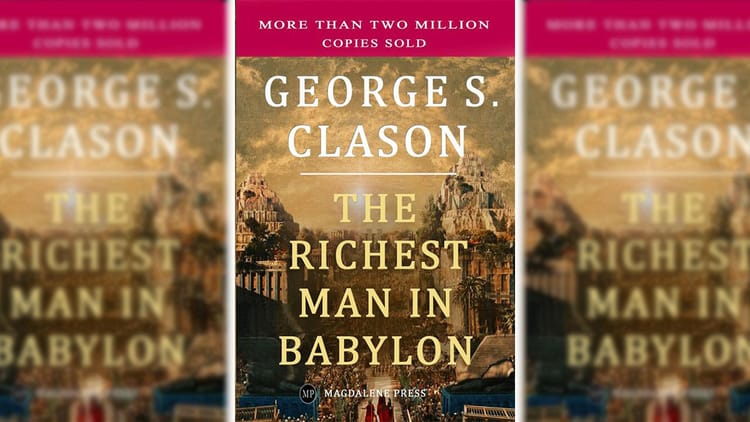
Member discussion